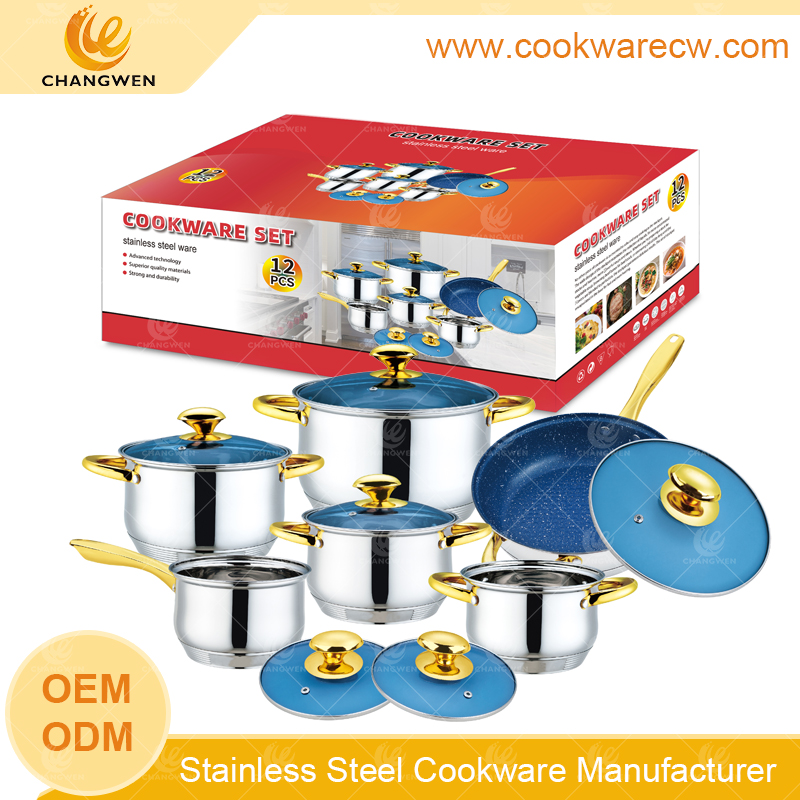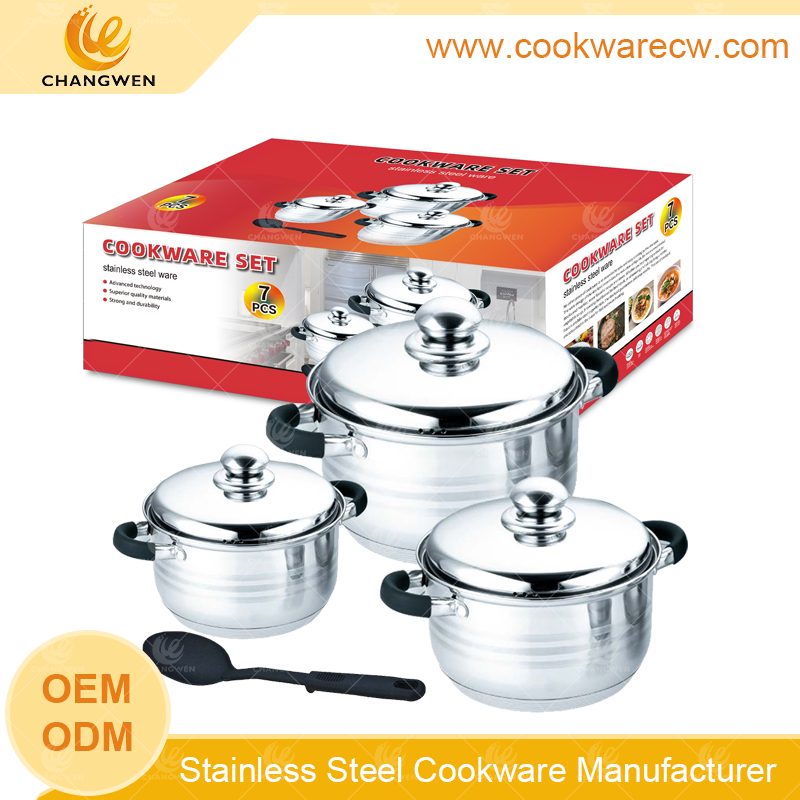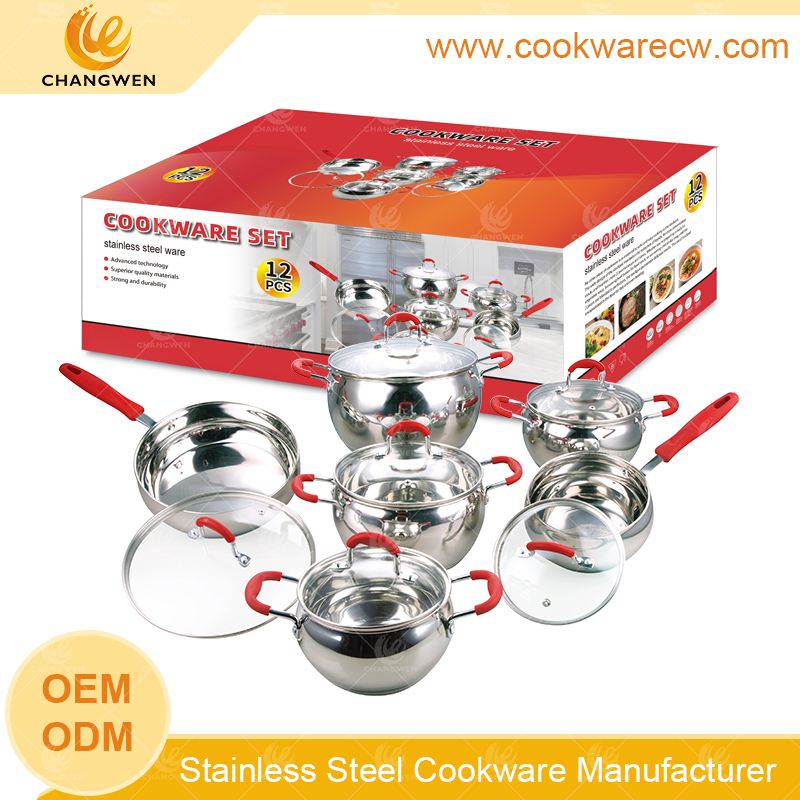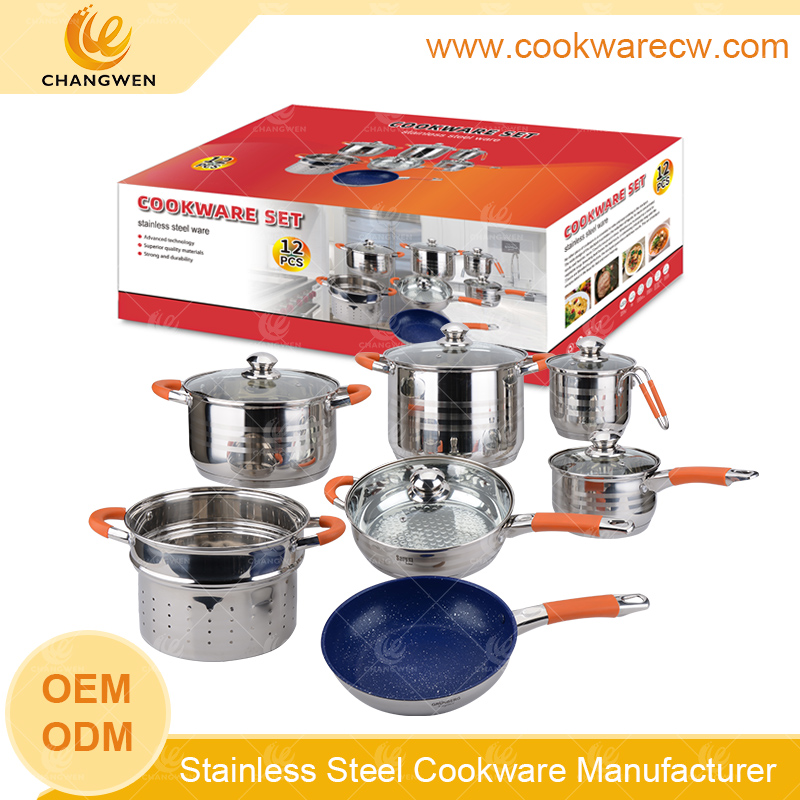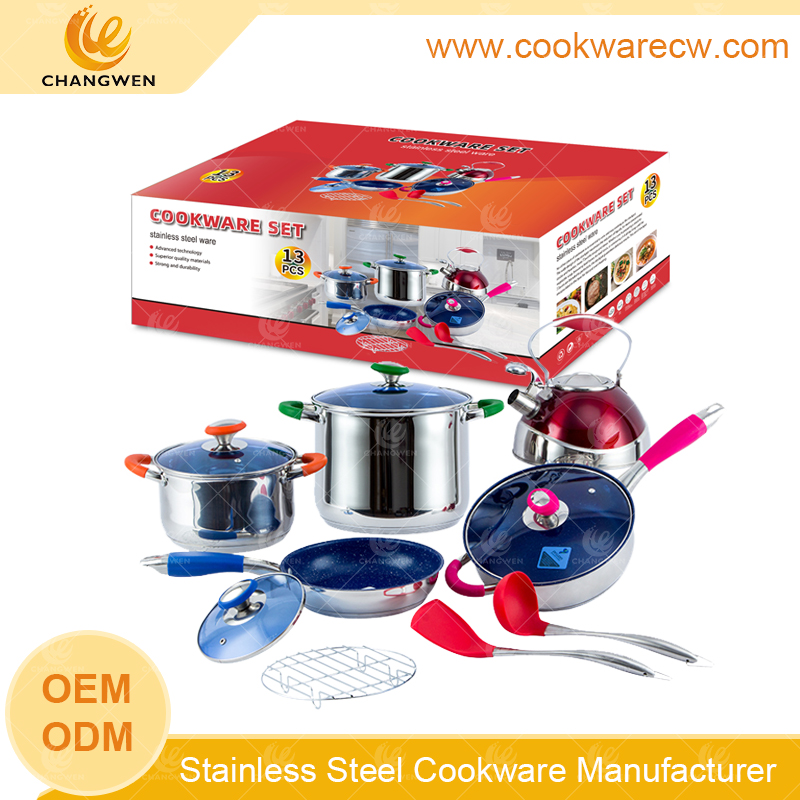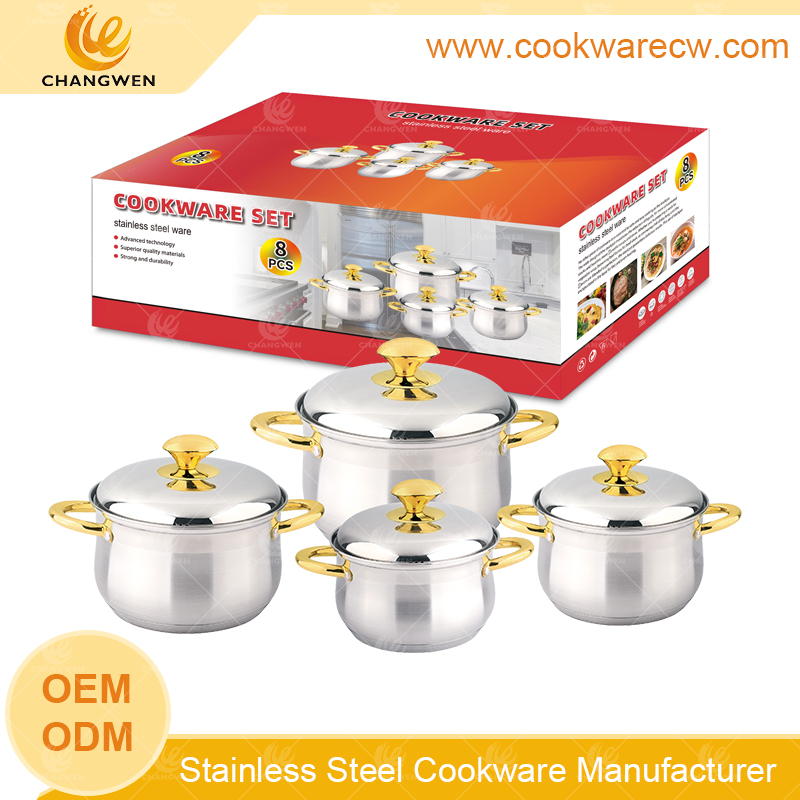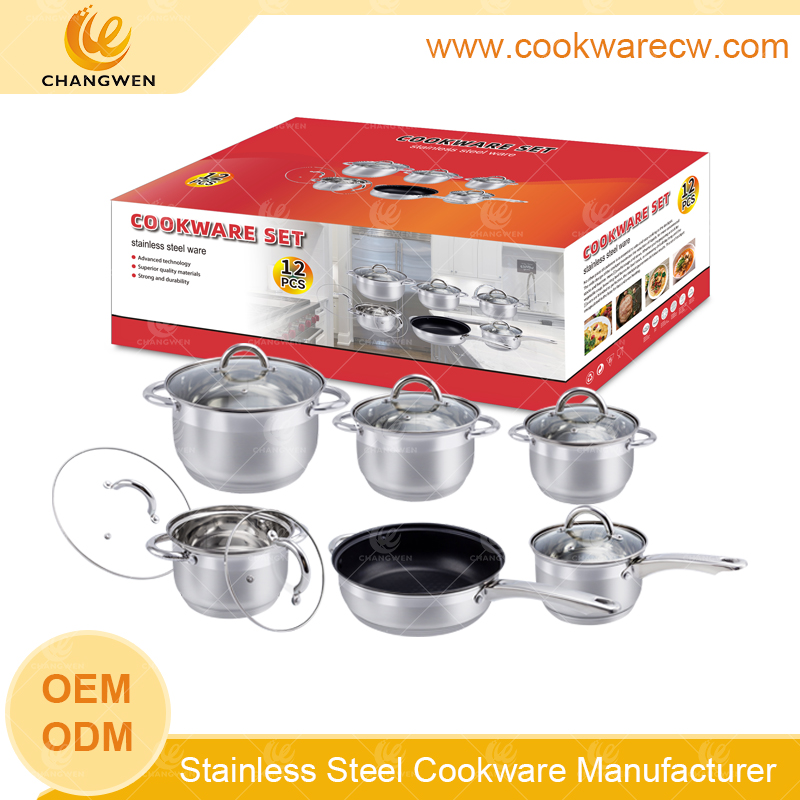Blog & News
We pay attention to the latest news on the product trend of kitchen utensils and continue to develop new products suitable for the market
Tips to extend the life of your frying pan and cook delicious food
Views: 189 Author: China CHANGWEN Cookware Publish Time: 11/22/2023 Origin: https://www.cookwarecw.com
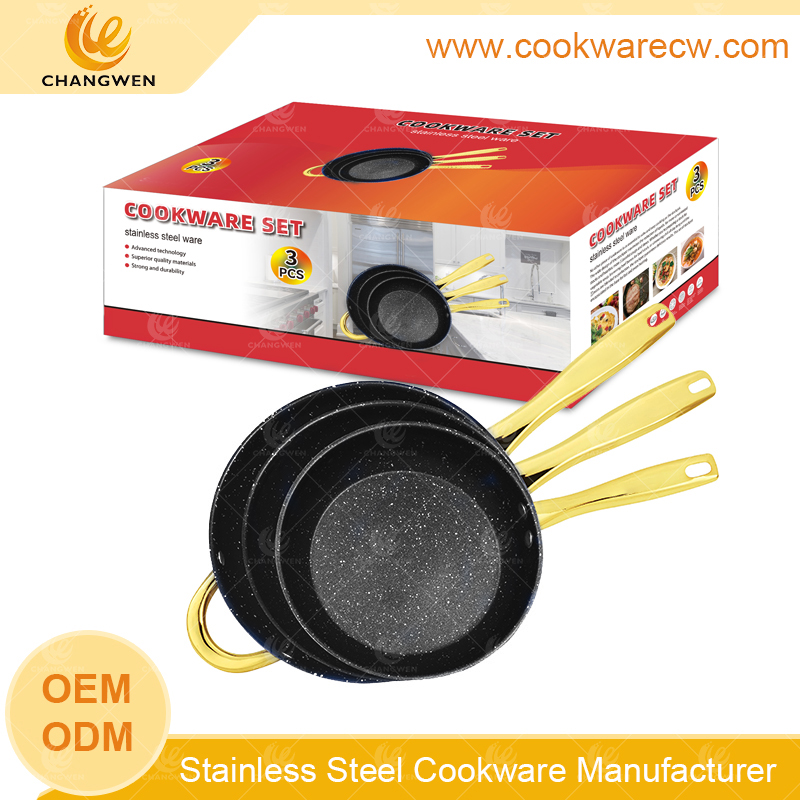
Frying pans are common cooking utensils in the kitchen. When using them, you need to pay attention to the following things to ensure safety and extend the service life of the frying pans:
Coating Protection: If the frying pan has a coating (non-stick coating), avoid using sharp tools such as metal spatulas to avoid scratching and damaging the coating. It is better to use wooden or plastic tools.
Preheat: Preheat the frying pan properly before starting cooking. This ensures that food is heated evenly and reduces the chance of food sticking to the bottom of the frying pan.
Proper Heat: Avoid using excessively high heat, especially with nonstick-coated frying pans. High temperatures can damage coatings and even release harmful substances.
Use the right amount of oil: Before cooking, apply an appropriate amount of cooking oil to the bottom of the frying pan to reduce the possibility of food sticking. Using too much oil can cause food to be too greasy.
Avoid dry cooking: Avoid heating the frying pan over an open flame without food to avoid damaging the coating or body.
Regular cleaning: Clean the frying pan promptly to prevent the accumulation of food residue and avoid oil stains or food from adhering to the bottom of the frying pan.
Soft cleaning tool: After the frying pan has cooled, use a soft cleaning tool, such as a sponge, with a mild detergent to clean it. Avoid pouring cold water into the pot when it is hot to prevent damage to the surface processing material.
Pay attention to temperature differences: Avoid placing a hot frying pan into cold water quickly, or placing a cold frying pan on a heat source to avoid temperature differences causing damage to the frying pan.
Stove Compatibility: Make sure the frying pan is suitable for the stove you are using. Different pot materials and coatings are suitable for different types of stoves.
Avoid Excessive Vibration: Avoid using sharp tools inside the frying pan and excessive vibration on the frying pan to avoid damaging the coating or body.
Wipe dry: After cleaning, wipe the frying pan dry with a clean cloth. For non-iron frying pans, do not boil the water dry to avoid damage. Also, wiping away any moisture will help prevent your frying pans from oxidizing and rusting.
Storage method: Avoid direct contact with other pots or hard objects when storing. You can use soft kitchen utensil pads to isolate it to avoid scratches or damage.
By paying attention to the above things, you can make better use of your frying pan and ensure safe and convenient cooking.
JIANGMEN CHANGWEN COOKWARE & KITCHENWARE CO., LTD. is a high-tech enterprise integrating the research and development, manufacturing, export trade and independent brand sales of stainless steel cookware. Its products are exported to more than 100 countries and regions including Europe and the United States, and it is one of the world’s important suppliers of stainless steel products. Please feel free to contact us if you need anything!
Latest News
- What is Surgical Stainless Steel Cookware?
- What is 18/10 Stainless Steel Cookware?
- The Ultimate Guide: Where to Buy Large Stainless Steel Steamers
- Stainless Steel Cookware Manufacturers
- Cast Iron Cookware Manufacturers
- How much does a three-layer steamer cost and how to choose one?
- What Materials are Used in Frying Pans, and Which are Good?
- What material is good for stainless steel frying pan?
- Features of Capsule Bottom Stainless Steel Cookware
- What is the difference between stainless steel 18/8, 18/10, 304, and 306
- The Most Important Step in the Nonstick Frying Pan Manufacturing Process
- where is stainless steel frying pan manufactured
- Explore the Differences Between Cheap and Expensive Stainless Steel Cookware
- Advantages and Disadvantages of Chinese Cookware
- Why choose 180/8 material for stainless steel cookware?
- What are the purchasing channels for cookware in Mexico?
- Opening a cookware store in Mexico, how to purchase goods
- Why choose stainless steel cookware when exporting to Mexico?
- A Deep Dive into Stainless Steel Cookware: Comparing 304, 316, 430 and Three-layer Stainless Steel Pots
- A Comprehensive Guide to Cookware Materials and Their Pros and Cons
 English
English Español
Español Português
Português
